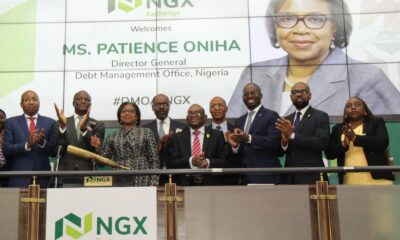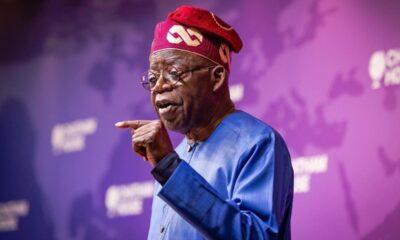- Lagos, Delta, Rivers, Akwa Ibom Top Domestic Debt List
With a debt of N1.18tn, Lagos and three oil producing states – Delta, Rivers and Akwa Ibom – are the most indebted state governments in the country in terms of domestic debt, analysis of the subnational public debts has shown.
The 36 states of the federation as well as the Federal Capital Territory Administration had a combined domestic debt of N3.85tn as of December 31, 2018, the data obtained from the Debt Management Office on Sunday revealed.
This represents 23.15 per cent of the country’s domestic debt portfolio of N16. 63tn, leaving the Federal Government with N12.77tn representing 76.84 per cent of the domestic debt portfolio.
The four states – Lagos, Delta, Rivers and Akwa Ibom – hold 30.71 per cent of the total domestic debt owed by the subnational governments in the country.
Among the four states, Lagos State is on top of the list with a domestic debt of N530.24bn. This means that Lagos State alone holds 13.76 per cent of the country’s subnational domestic debt.
Our correspondent had in April exclusively reported that Lagos with a foreign debt commitment of $1.43bn held 33.81 per cent of the country’s foreign subnational debt portfolio.
Delta State, on the other hand, has a domestic debt commitment of N228.81bn which translates to 5.94 per cent of the country’s subnational domestic debt portfolio.
Rivers State comes third on the domestic debt portfolio with a commitment of N225.59bn, which translates to 5.85 per cent of the country’s subnational domestic debt.
Akwa Ibom State, fourth on the list, owes a total of N198.66bn. This represents 5.16 per cent of the nation’s subnational domestic debt portfolio.
Other states that are high on the domestic debt list include another oil producing state, Cross River, with a domestic debt commitment of N167.96bn; FCT Administration, N164.25bn; and Osun, N148.1bn.
Others are Bayelsa with a domestic debt commitment of N130.04bn; Ekiti, N118.01bn; Kano, N117.08bn; Plateau, N100.37bn; Imo, N98.78bn; Ogun, N98.72bn; Benue, N 97.35bn; and Oyo, N91.52bn.
The least indebted states (domestic) include Yobe State with a domestic commitment of N27.77bn; Katsina, N30.85bn; Jigawa, N35.16bn; Anambra, N33.49bn; Niger, N41.83bn and Ondo, N49.12bn.
In foreign debt, Lagos is followed by Edo State with a foreign debt portfolio of $276.25m representing 6.53 per cent of the subnational foreign debt portfolio.
Following Edo is Kaduna State with a foreign debt portfolio of $227.25m representing 5.37 per cent of the country’s subnational foreign debt as of December 31, 2018.
Cross River State completes the list of the top four on the foreign debt with a portfolio of $188.77m representing 4.46 per cent of the subnational foreign debt portfolio.
Other top debtors in the foreign debt category include Bauchi, $133.93m; Enugu, $126.18m; Anambra, 107.04m; Ekiti, $106.21m; Oyo, $105m; Ogun, $103.26m; Osun, $99.08m; Abia 98.58m and Adamawa, $97.79m.

 Forex2 weeks ago
Forex2 weeks ago


 Naira1 week ago
Naira1 week ago
 Naira4 weeks ago
Naira4 weeks ago
 Company News4 weeks ago
Company News4 weeks ago
 Billionaire Watch1 week ago
Billionaire Watch1 week ago




 Naira2 weeks ago
Naira2 weeks ago




 Naira3 weeks ago
Naira3 weeks ago




 Naira1 week ago
Naira1 week ago






















